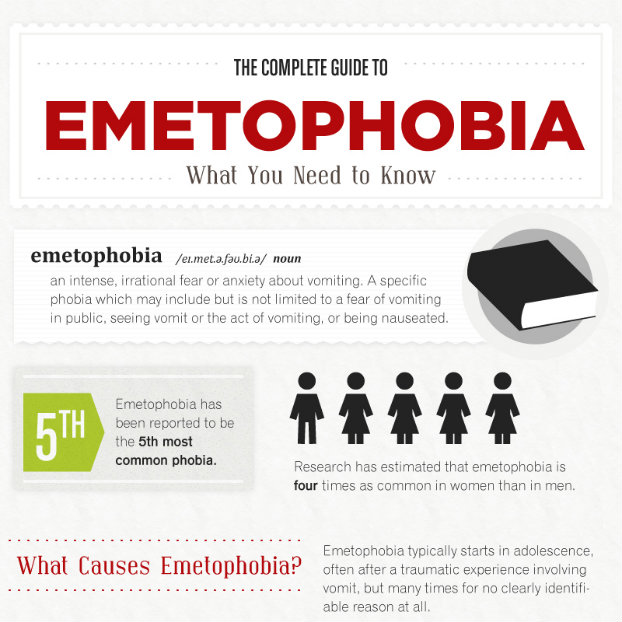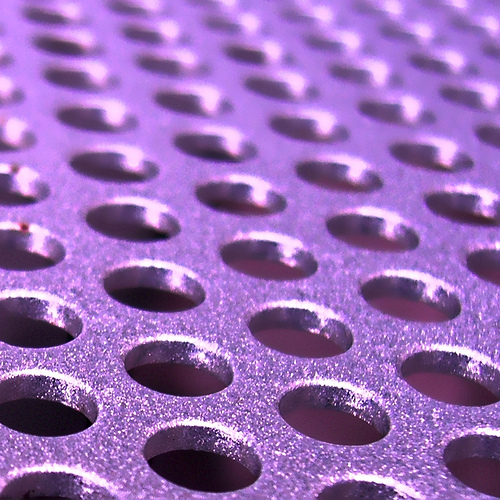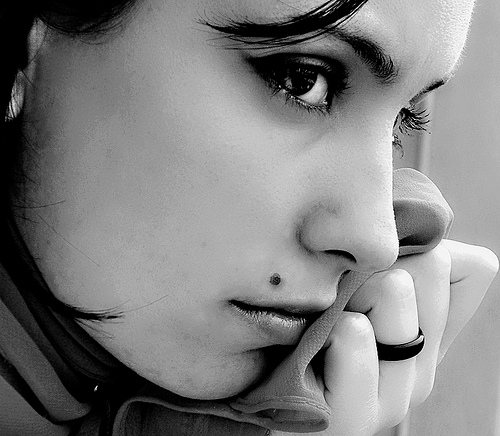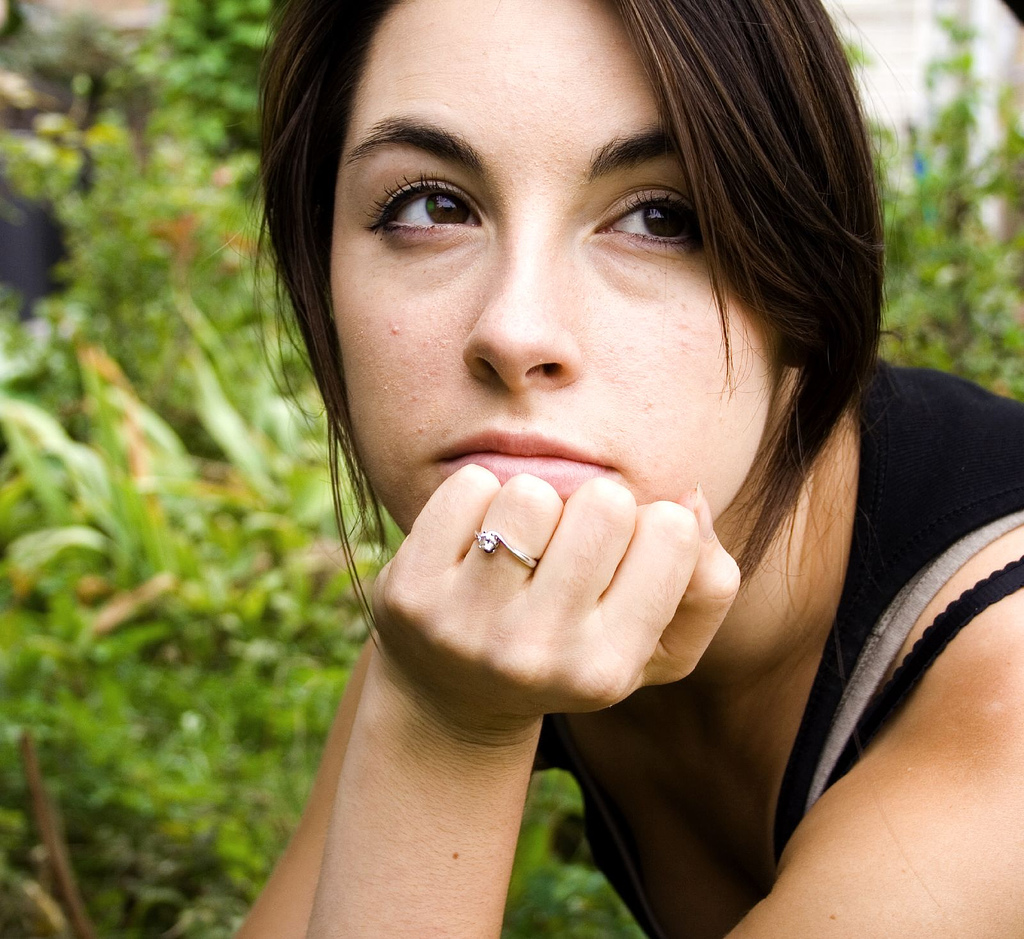 The entry for Emetophobia on The Free Dictionary is very simple: “fear of vomiting.” People who actually have the disorder know it can be so much more than that. Emetophobia can affect your social life, your job, your diet. It can make you afraid to go to certain places, to be around others, or even to eat away from home.
The entry for Emetophobia on The Free Dictionary is very simple: “fear of vomiting.” People who actually have the disorder know it can be so much more than that. Emetophobia can affect your social life, your job, your diet. It can make you afraid to go to certain places, to be around others, or even to eat away from home.
Who Suffers from Emetophobia?
Most people who have Emetophobia are women, but the phobia can be found in men as well. While the disorder may be equally taxing on both sexes, the effects on women are usually somewhat different. Issues like pregnancy are unique to women, and they can especially difficult for emetophobic females.
Kirsty Rabjohns, beautiful and blond, may not be someone you would expect to have Emetophobia. To outsiders, she probably seems like a healthy, successful individual: she has relationships, she is educated, and in 2008 she was even a finalist in the Miss Wales pageant.
Rabjohns, however, has admitted that her life has been far from perfect.
Story of an Emetophobic Girl
Like many emetophobics, Rabjohns’ fear of vomiting can be traced back to her childhood. She can’t remember exactly when it started, but she says she was always “fussy” and “unhappy” as a little girl. Like many emetophobics, she also had a period of difficulty with her diet because of her fear of being sick from food.
Rabjohns recalls having an intense fear of leaving her home (agoraphobia) from ages twelve to fifteen. She describes herself as often being “home in bed on [her] own, shaking.” Her teenage years were by far the most difficult. She could not get over her anxiety, which prevented her from doing what other girls her age were doing. Emetophobia cost her most of her friends, who could not understand her behavior. It also affected her education, causing her to miss class frequently.
She also dealt with the disappointment and frustration caused by unsuccessful treatments and skeptical doctors. This is a common problem for emetophobics because of the lack of awareness people have about the phobia.
How Rabjohns Got Her Life Back
Today, Rabjohns says she is much improved, though she still has a sensitive stomach. She advises fellow emetophobics to “set…small goals” and talk to others about their feelings. She finds that one thing that really helps her is shiatsu, a form Japanese massage that targets key points on the body. It is believed to help with many stress-related ailments.
Rabjohns hopes to become a clinical psychologist so she can help young people with Emetophobia and their parents to heal and to cope. She also expresses a desire to someday be healthy enough to have a family.





